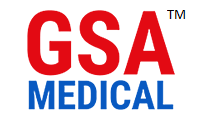Description
| Intended use: |
Intended use: Angiopoietin-2 (ANG2) is a 56.9 kDa glycosylated growth factor that is specific for endothelial cells (ECs) https://www.uniprot.org/uniprot/O35608 ANG2 expressed in embryonic vessels and contributes to the formation of new vasculature. In adults, it is restricted to sites of vascular remodeling (e.g. ovary, uterus, placenta) and wound healing. ANG2 is regulated by the cytokine vascular endothelial growth factor (VEGF). Together with VEGF, ANG2 induces endothelial cell migration, proliferation, and vascular sprouting. During angiogenesis, ANG2 exerts its effects via the angiopoietin-1/TIE2 receptor signaling system on endothelial cells. Disruption of this signaling leads to the loss of endothelial integrity. In consequence, the endothelium responds to various pro- inflammatory cytokines and growth factors. Thus, ANG2 might cause vascular micro-inflammation in patients with chronic kidney disease (CKD). Various studies demonstrated that ANG2 levels increase with CKD stage and are associated with fluid overload and abnormal cardiac structure. Furthermore, ANG2 concentrations correlate with mortality in patients with CKD stages 4–5. Although ANG2 levels recover after successful kidney transplantation, ANG2 continues to be a cardiovascular risk factor in this population. Elevated ANG2 levels have also been observed in most cardiovascular disorders, such as coronary heart disease, congestive heart failure, and peripheral arterial disease. In terms of pathological angiogenesis, ANG2 has been widely explored in tumor-induced angiogenesis. The inhibition of ANG2 decreased the tumor size and metastatic efficacy. Thus, in cancer, targeting the TIE2- Angiopoietin pathway has shown promising results in some preclinical and clinical trials, including studies on recurrent or metastatic breast and renal cell carcinomas. Intended applications:
|

